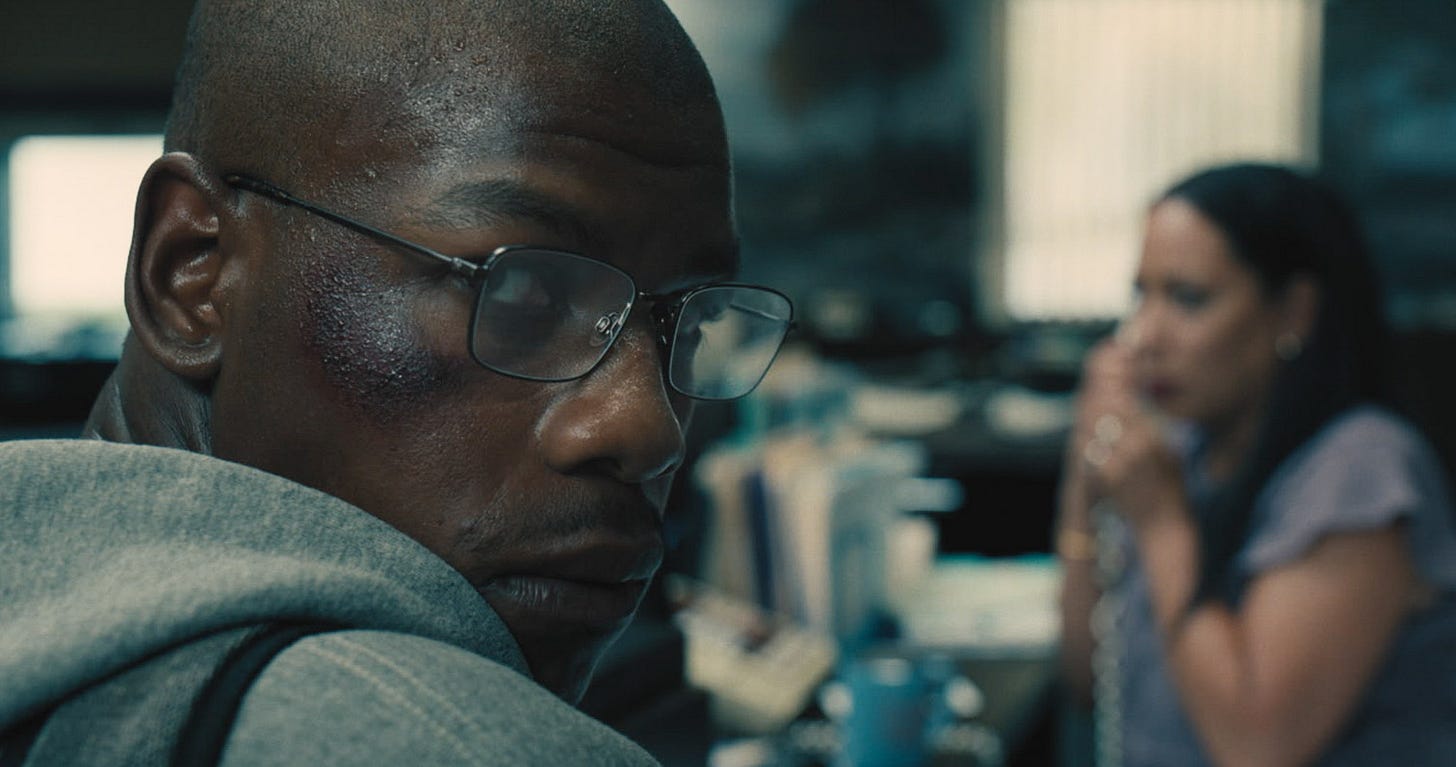Breaking
John Boyega shines in this tense and exquisitely human drama about a struggling ex-Marine who takes extreme measures to combat a commonplace wrong.
I admit I’ve not seen a lot from British actor John Boyega to impress me. His hammy acting in the “Star Wars” sequel trilogy stood out even in a franchise famous for wooden line readings and unconvincing emotions. Nothing else of his I’ve seen did much to change my perception; certainly he did little to help that forgettable “Pacific Rim” sequel.
So I am utterly blown away by his career-changing performance in “Breaking.” He plays Brian Brown-Easley, a mentally unstable ex-Marine who holds up a bank with a bomb — ostensibly to have returned to him the Veterans Affairs payment he feels he was fraudulently denied, but really to draw attention to his plight as a human being worthy of dignity.
It’s an extraordinarily empathetic portrait, as the audience is invited to sympathize with a man committing multiple felonies and threatening the lives of innocents. Brian begins the story as a severely otherized figure, just another Black man doing bad things, and by the end of he has been turned into a humble, heroic presence we root and cheer for.
Here is one of the year’s best performances in one of the year’s best films.
“Breaking” is based on true events, directed by Abi Damaris Corbin from a screenplay she co-wrote with Kwame Kwei-Armah. This is the second feature film directing credit for Corbin and the first screenwriting one for Kwei-Armah; both should garner significant attention from the industry and bigger projects to undertake.
We know very little about Brian as the movie opens, other than that he is on the verge of becoming homeless and that he has an adorable little girl, Kiah (London Covington) that he dotes upon. We also see him roughly turned out from some sort of government building, his face battered and his glasses knocked askew.
He is an unimpressive presence, clothed in shapeless sweatsuit, omnipresent backpack and a head shaved down to a knob. Brian constantly glances about furtively, his head bowed by troubles, and he carefully snuffs out his cigarette halfway down so he can smoke the rest of it later.
Brian constructs some sort of bomb device and takes it into a Wells Fargo in Atlanta suburb Marietta. Politely withdrawing $25 from his account from a bubbly bank teller, Rosa Diaz (Selenis Leyva), he passes a note letting her know about the bomb. An astute bank manager, Estel Valerie (Nicole Beharie), notices what’s going on and quietly ushers out the rest of the employees and patrons.
The rest of the movie plays out in real time as Brian begins communicating his demands and terms with the police and media. He is strangely polite and even deferential, calling everyone sir and ma’am, and apologizing afterward when he threatens to blow the three of them up.
At one point, when a loud sound like a bullet striking a window occurs, Brian leaps onto Rosa to protect her — and then says he’s sorry for touching her without permission.
Brian’s beef is with the VA, which garnished the entirety of his disability check for erroneous reasons. He demands it back, and wants to show the world how badly he’s been treated. Estel, an astonishingly calm presence given the circumstances, offers to wire bank money into his account. But Brian refuses — he wants the wrong righted more than he does the cash.
The late Michael K. Williams shows up as Sgt. Eli Bernard, the police negotiator assigned to defuse the situation. He’s the rare cop who prefers to listen and think before acting — even as an array of helicopters, SWAT teams, snipers and comms teams encamps outside the bank. So he lets Brian speak with Lisa Larson (Connie Britton), a producer from local television station WSB, before interceding himself.
Eli and Brian quickly establish a rapport, and the sergeant even reaches out to Brian’s ex-wife (Olivia Washington) to reassure her he’ll do everything in his power to make sure he gets out of that bank alive. Williams is so invested and powerful in his depiction, I’m reminded how much the screen world already misses him.
Of course, no matter how good the supporting performances and storytelling is, “Breaking” would not work if the lead actor wasn’t up to the challenge. Boyega is completely captivating, holding our attention and making us relate to this fractured man, even when he’s suffering his worst moments. It’s an Oscar-caliber turn.
Here is a tense, but also exquisitely human, drama that inflames our passions and touches our souls.



